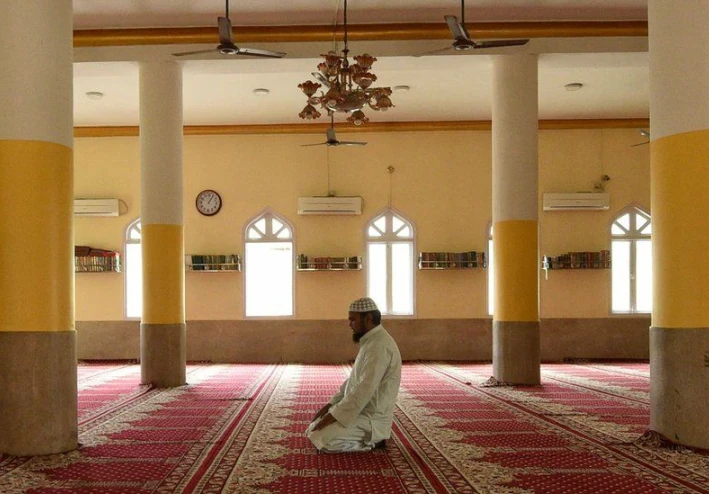
The Spiritual Dawn of the Hijri Year: Reflections on Muharram 1st and Ashura"
The Islamic calendar holds many religious and sacred occasions, but few are as spiritually full as the month of Muharram, particularly its first day and Ashura. As the beginning of the Islamic lunar calendar, Muharram is a start, but it is also a time for serious reflection, historical recollection, and spiritual renewal. To Muslims around the world, the month begins in reverence and gravity, culminating in the powerful day of Ashura on the 10th of Muharram.
The Importance of Muharram to Islam
Muharram is one of the four sacred months mentioned in the Qur'an, in which warfare is prohibited and religious activities are stressed. As stated by Allah in the Qur'an (Surah At-Tawbah, 9:36):
“Indeed, the months with Allah are twelve [lunar] months in the Book of Allah [from] the date Allah created the heavens and earth; four of them are sacred.”
One such hallowed month is Muharram, often referred to as "Shahr Allah al-Muharram" (the Month of Allah). Its very name indicates its elevated status, separating it from the other months of the Islamic calendar.
The Prophet Muhammad (peace be upon him) had taught the importance of Muharram in various hadith. One of the most quoted hadith is:
"The best of fasting after Ramadan is fasting in Allah's month of Muharram." (Sahih Muslim)
This points to the fact that the Prophet himself recommended more seriousness during this month, especially in the form of fasting and worship.
The First Day of Muharram: A Time for Renewal
The Islamic New Year falls on the first day of Muharram. While Muslims do not commemorate it with celebrations like in other cultures, it is an opportunity for spirituality. It is an opportunity to reflect on the last year, seek forgiveness, and make resolutions for spiritual growth in the coming months.
Muslims begin the year with du'a (supplication), self-reform, and a promise to strengthen their faith. It is also a time when Muslims remember the Hijrah (migration) of Prophet Muhammad from Mecca to Medina—a pivotal moment in Islamic history and the starting point for the Islamic calendar.
The Day of Ashura: Remembrance and Lessons
The most significant day in Muharram is the 10th day, known as Ashura. It is a day with multiple layers of religious and historical significance to both Shia and Sunni Muslims.
For Sunni Muslims:
Ashura has become a day of gratitude and remembrance. Out of genuine hadiths, when the Prophet Muhammad (peace be upon him) performed his hijrah to Medina, he found that the Jews were fasting on the 10th of Muharram as a remembrance of the day Allah freed Prophet Musa (Moses) and the Children of Israel from Pharaoh when He caused the Red Sea to part. The Prophet announced:
"We are more worthy that Musa should be ours than them," and he urged Muslims to fast on Ashura. (Sahih Bukhari and Sahih Muslim)
Fasting on this day is highly recommended, and it purifies one of past year's sins. The Prophet related:
"Fasting the day of Ashura, I hope Allah will expiate thereby for the year that came before it." (Sahih Muslim)
Fasting on the 9th and 10th, or 10th and 11th of Muharram is also practiced by many Muslims to differentiate their practice from others.
For Shia Muslims:
Ashura further possesses a much deeper emotional and spiritual significance considering the Martyrdom of Imam Hussein, the grandson of the Prophet Muhammad (peace be upon him), in the Battle of Karbala in 680 CE. Imam Hussein combated tyranny and oppression, and his defiance came to be equated with sacrifice, courage, and justice.
Ashura is a day of remembrance and mourning for Shia Muslims. They celebrate the sacrifice of Imam Hussein through processions, recitation, and somber gatherings called majlis, where the story of Karbala is retold with emotion and sorrow. It serves as a poignant reminder to stand up for what is right even in adversity.
Spiritual Lessons of Muharram and Ashura
The chronicles of Ashura and Muharram are cross-sectarian and contain universal lessons for all Muslims:
Patience and Perseverance – Prophet Musa's patience or Imam Hussein's perseverance, the narratives instruct Muslims to remain firm in their faith during hardship.
Sacrifice for Justice – Imam Hussein's courage at Karbala teaches the lesson of standing up to injustice, even at the cost of life, as a righteous cause in Islam.
Renewal and Repentance – The beginning of Muharram offers a chance to begin anew spiritually, to seek pardon, and to take fresh vows for the faith.
Unity through Worship – In spite of different historical interpretations, fasting, prayer, and remembrance in Muharram unite Muslims in worship of Allah.
Conclusion
The month of Muharram and Day of Ashura are sacred in the hearts of Muslims across the globe. From its beginning on the first day till the emotional peak of Ashura, this blessed month awakens reflection, remembrance, and righteousness. It provides lessons from the biographies of prophets and martyrs, calling upon believers to reawaken faith, uphold justice, and remember the age-old struggle between truth and falsehood.
As Muslims welcome each new year of Islam, Muharram is simultaneously a start and a look back, a time to remind the soul of its need for rebirth and of its duty to justice and mercy. It is a season in which to recall the ideals that constitute Islam and to honor the heroes of its history—not merely in remembrance, but in action.

































